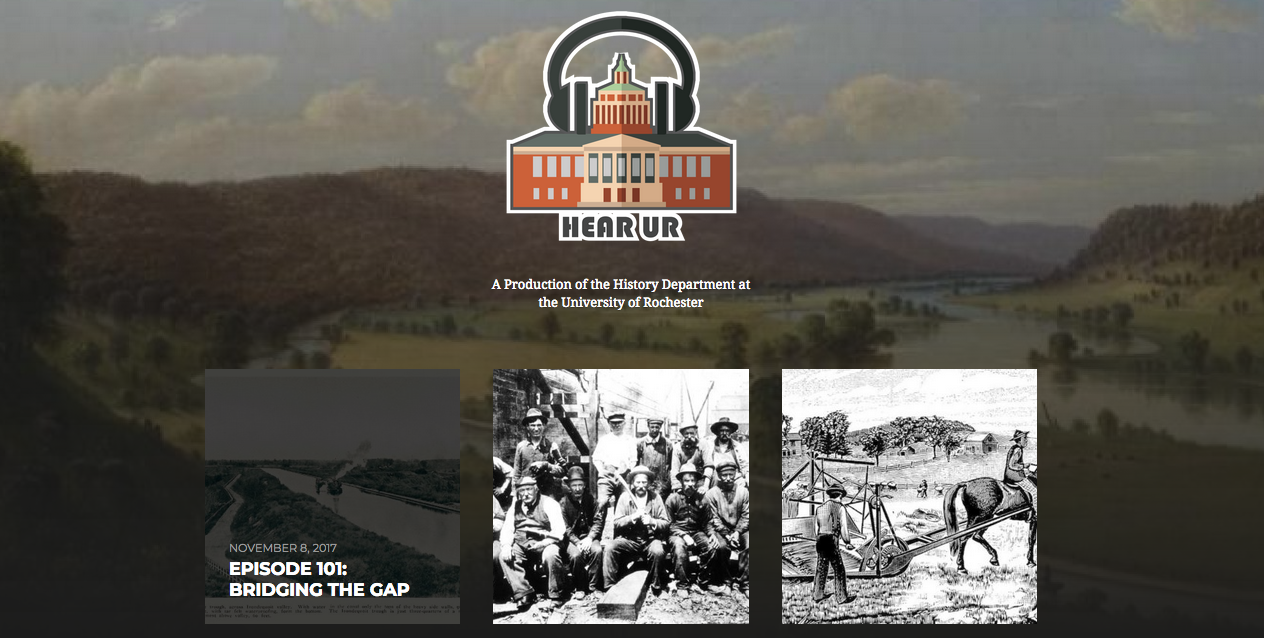Over the course of the semester the students of Professor Thomas Fleischman’s Earth, Wind, Water, Fire: An Environmental History of Everywhere class have challenged the “traditional” homework assignment. Rather than churn out a 15-20 page research paper, Fleischman has encouraged his students to think about engaging audiences in new ways. The assignment—HearUR—a podcast series produced by the Department of History at the University of Rochester trains students to think about historical writing in new ways. Students in the course develop a history podcast series that combines historical research, blog-style posts, and digital storytelling techniques meant to bring historical research into the twenty-first century.

My task as the Andrew W. Mellon Fellow in the Digital Humanities has been to design, implement, and train students to be equipped in 21st century skills. Students spend time learning content management systems such as WordPress. They have been trained in audio recording and editing. Communication has changed in the twenty-first century. As such, graduates are expected to have certain digital literacies. In addition to the training, however, students are trained to think critically about new technology. The incorporation of new tools brought about discussions about historical writing and storytelling. How does a humanist communicate in the 21st century? How can digital tools amplify the historian’s voice? What are the benefits and potential pitfalls of new digital tools? Conversations surrounding digital tools prepare students to be both aware and critical of the biases, assumptions, and hurdles of digital technology in modern American culture and society.
Check out the HearUR website for student blogs and audio files. Or you can listen to the podcast episodes below.
Camden Burd is a PhD candidate in the Department of History at the University of Rochester. He is a 2016-2018 Andrew W. Mellon Fellow in the Digital Humanities.

